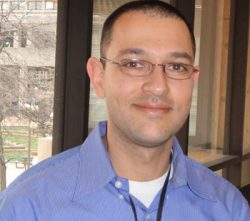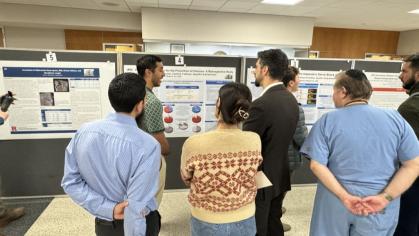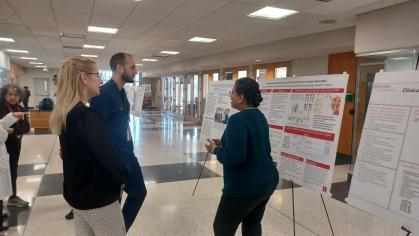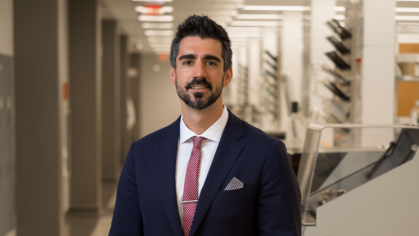Researcher Stresses Importance of Communicating Scientific Research to the Public
Dr. Daniel Kadouri researches the disease-fighting potential of predatory bacteria—microbes that devour germs immune to antibiotics. His findings could help halt a global epidemic of drug-resistant bacteria that has led to a rise in untreatable infections and illnesses. Kadouri, who in the last 10 years received multi-million-dollar grants from the U.S. Department of Defense, has lectured on the topic at the Pentagon, NASA and the U.S. Army, in addition to academic institutions worldwide. Here, Kadouri, a faculty in the Department of Oral Biology, emphasizes the importance of clearly communicating with the public about scientific research.
How has COVID-19 highlighted the need for the public to understand scientific research?
It showed us how important it is to communicate the right thing. This pandemic will not be controlled without the public’s help. As scientists, it is extremely important to inform the public of what we know as well as what we don’t know. It is vital that we build trust between the public and the scientific community. Sometimes this can be difficult as people view changes in the guidelines that researchers and physicians provide as a lack of consistency and don’t understand that research is a dynamic thing. At times, we need to change the guidelines as we obtain new information. The use of masks is a good example of this. Scientists also need to understand that at the end of the day, we are public servants. The work that we do is funded, for the most part, by taxpayer money. It is our obligation to show them what we do with the funds and not take public trust for granted.
Has it been difficult for you to explain your own research to non-scientists?
Not that difficult. Drug resistant infections are an issue that most people know something about. Everyone knows, from personal experience, what infections are and what antibiotics are. Many people have already heard about antibiotic resistance because that’s been in the news. For years, people viewed bacteria as a negative thing but that’s started to change. They know about probiotics and they understand that bacteria can be a good thing that can help keep people healthy. Predation is a simple concept that they know about and that relates to our very basic understanding of nature. If you see a cat or a bird hunting outside, you understand predation. So explaining our approach of using bacteria to prey on other bacteria is somewhat straightforward.
How have you adapted your own communication style in response to different audiences?
To a lay audience, I try to give more background. I don’t usually go deep into the genetics and biological pathways that are involved in predation but emphasize more the big picture and how we can use the technology to our advantage. When talking to scientific audience, I definitely give more experimental data to support our hypothesis. As most of the funding came from the Department of Defense, I had the privilege to give talks to military scientific and non-scientific audiences, including military researchers at Walter Reade, cadets at West Point and Army personnel and civilians working at the Pentagon. People in the military understood the problem we were trying to solve first hand. Drug-resistant pathogens are something they were and are dealing with. For example, they had experienced injuries such as infected blast and burn wounds or worked with people who had injuries in war zones in Iraq and Afghanistan. Having an ability to treat and control infections are key in treating these wounded warriors.
Do you find yourself having to explain why a dental school is doing the kind of research that you do?
Yes, most people are surprised that we study predatory bacteria at a dental school. We did initially study predatory bacteria ability to control oral infection, but the same biological processes that happen in the oral cavity happens throughout the body. Studying oral infections can easily be translated to our understanding of other infections that can occur in other parts of the body. As Dr. Daniel Fine, the head of RSDM’s Department of Oral Biology would say, “The head is connected to the body.” A lot of our research was done in collaboration with other investigators, most of which working in medical schools, including Nancy Connell from NJMS. We let the science guide our research.




